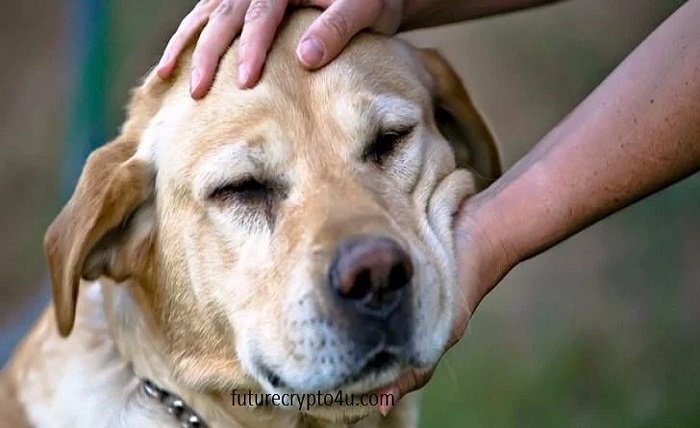The Complete Guide to Caring for Your Pet

Owning a pet can be one of the most rewarding experiences in life. Our furry friends provide unconditional love, companionship, and joy. However, being a responsible pet owner requires proper pet care and maintenance. This complete guide will provide tips and advice on how to keep your pet happy and healthy.
Choose the Right Pet
The first step is deciding what type of pet is right for your lifestyle. Consider the size of the animal, required care and maintenance, cost, and temperament. Speak with your veterinarian about breeds that may work best for your household. If you live in an apartment, smaller pets like fish, hamsters, or birds may be better suited. Make sure you have the time and resources to properly care for the pet you choose.
Pet Proof Your Home
Before bringing your new pet home, you’ll want to ensure their safety. Pet proof your home by removing any poisonous plants and keeping medications, toxic chemicals, and cleaners locked away. Secure loose wires and hide any wires you can’t keep away from your pet’s reach. Remove small objects or knickknacks that can be swallowed.
You’ll also want to find a safe place for your trash bin so it can’t be tipped over. Install baby gates to block certain areas if needed. Scratching posts, sturdy pet trees, and designated beds will also help protect your furnishings.
Necessary Pet Supplies
Once you’ve chosen the right pet for your home, you’ll need to purchase the basic supplies to cover their needs. These include:
– Food and water bowls– Stainless steel or ceramic work best. Choose a size appropriate for your pet.
– Pet food– Pick high-quality pet food appropriate for your animal’s species, age, and activity level.
– Bed and bedding– A cozy place to sleep and rest.
– Grooming supplies– Such as shampoo, brush, nail clippers, etc.
– Waste bags or litter box with litter– For clean up and house training.
– Toys– Interactive play is crucial for physical and mental stimulation.
– ID tag and collar or harness – Identification and safety. Microchipping is also recommended.
– Crate or carrier– For safe travel and limiting access to certain areas. Never use as punishment.
– Veterinary necessities – Flea/tick control, medications, first aid kit.
Feed Your Pet Properly
One of your most important jobs will be providing your pet with proper nutrition. Follow your vet’s recommendations for the type and amount of food based on your pet’s needs. Feed them high-quality pet food and avoid “people food” which can upset their stomach.
Have designated mealtimes instead of free-feeding to monitor appetite and eating habits. Make sure clean water is always available. Don’t make sudden changes to their diet and monitor for signs of food allergies or intolerance. Adjust food amounts based on age, activity level, and weight.
Grooming is Key
Regular grooming keeps your pet clean, healthy, and comfortable. Brush their coat frequently to remove dirt and loose hair. Trim their nails carefully to avoid injury. Check and clean their eyes, ears, teeth, and other body parts. Bathe your pet when necessary using appropriate pet shampoo. Grooming helps prevent skin issues, parasites, and other health problems.
Vet Visits Are a Must
One of your top priorities should be your pet’s healthcare. Find a trusted veterinarian and schedule well visits annually. Keep your pet up to date on all necessary vaccinations. Have your vet prescribe flea, tick, and heartworm prevention medication. Discuss any concerning symptoms or behavior changes with your vet immediately. Senior pets may require more frequent vet visits for health monitoring. Staying on top of medical care can prevent many problems down the road.
Exercise and Play
Adequate exercise and playtime are vital for your pet’s physical health and behavior. Take dogs on regular walks and play fetch. Have cats chase toys and place perches and climbers they can use. Small pets need room to move around and explore. Interact with your pet positively each day. A tired, well-exercised pet will be less likely to be destructive or hyper. Mind and body stimulation will keep them happy and healthy.
Training is Beneficial
Taking time to train your pet will make for a happier household. Training establishes important commands, house rules, and proper manners. Positive reinforcement works best. Use treats, praise, play as rewards. Set realistic goals based on your pet’s abilities. Consistency is key – everyone should use the same techniques. Well-trained pets are better behaved on walks, with company, and in new environments. Invest time and patience into properly training your furry friend.
Give Proper Socialization
Socializing your pet helps prevent behavior problems down the road. Early positive interaction with people and animals is ideal. Invite friends over regularly. Take your pet on walks to be around others. Set up puppy play dates or kitten kindergarten classes. Introduce new sights, sounds, and environments gradually. A well-socialized pet will be friendlier, less anxious, and better adjusted. Keep socialization going throughout their life.
Show Lots of Love
While you attend to your pet’s physical needs, don’t forget about their emotional needs. Shower your furry friend with love and affection each day. Spend quality one-on-one time together. Pet, cuddle, and brush them often. Bring them joy with playtime and new toys. Celebrate holidays and milestones too! When your pet feels safe, cared for, and loved, your bond grows stronger. Spread the love as much as you can.
Caring for your beloved pet is incredibly rewarding but also a big responsibility. Follow this guide to cover all the essentials of responsible pet ownership. With proper care, maintenance, and TLC, your pet will enjoy a happy, healthy life as your faithful companion.
Conclusion
Providing excellent care for your furry friend ensures they live a comfortable, enriched life as your beloved companion. While owning a pet involves much work and commitment, the unconditional love you receive in return makes the effort completely worthwhile. Use this comprehensive guide to be the best possible caretaker for your animal. They depend on you for their wellbeing. By staying informed and proactive with all aspects of care, you can build a strong lifelong bond and enjoy priceless memories together. Here’s to many happy years with your cherished pet!
Frequently Asked Questions
What are the most important aspects of pet care?
The essentials of pet care include choosing the right animal, pet proofing your home, buying necessary supplies, proper feeding/nutrition, grooming, vet visits, exercise/playtime, training, socialization, and showing affection.
How often should I take my pet to the vet?
Take your pet to the vet at least once a year for an annual wellness checkup and vaccinations. Pets with medical issues may require more frequent vet visits. Senior pets should have checkups twice per year.
What can I do to pet proof my home?
To pet proof, remove poisonous plants and hide wires/cords. Keep household cleaners/toxins locked away. Remove small objects that could be swallowed. Install baby gates as needed. Provide designated scratching posts, beds, and pet trees.
Why is exercise important for pets?
Adequate physical and mental exercise prevents problem behaviors caused by boredom, anxiety, and excess energy. Exercise keeps pets fit and at a healthy weight. Playtime strengthens the bond between pet and owner.
How can I properly train my new pet?
Use positive reinforcement like treats and praise. Be patient and consistent. Set realistic goals appropriate for pet’s abilities. Establish important commands and house rules. Well-trained pets are better behaved and more confident.




